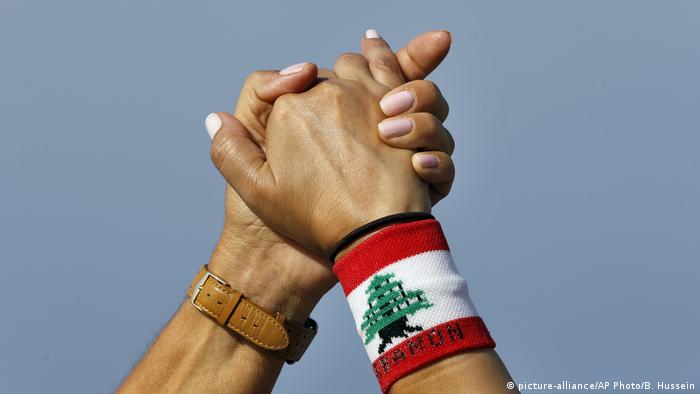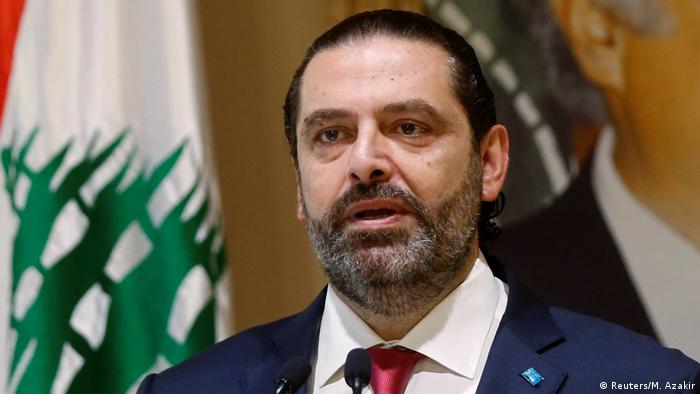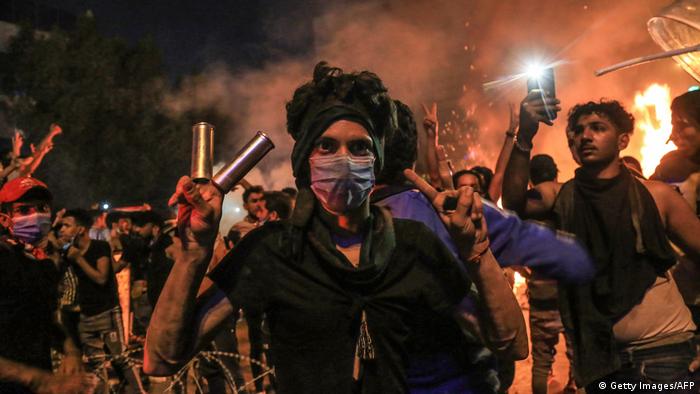The protests in Lebanon have pushed Premier Saad Hariri to resign. In Iraq, the protesters are opposed to a mere Cabinet reshuffle and are demanding fundamental reforms. But the denominational System is tough.

Saad Hariri has quit. For weeks the citizens in Beirut and other cities went to the streets to protest against the political System of the country. Under the impact of the ongoing protests, the Prime Minister declared his resignation. “I’ve been trying the whole time to find an exit and to listen to people and to protect the country from the security and economic dangers,” said Hariri: “to put it bluntly, I’m in a cul-de-SAC. It is time for a decisive step to confront the crisis.”
Shortly before the crisis escalated. Supporters of the Shiite Amal movement, and Hezbollah had attacked according to eyewitness reports, demonstrators on one of the major roads and their tents torn down on the Central martyrs ‘ square. However, the protesters stuck to their demands for a resignation of the entire political leadership.

Resignation: the Lebanese Premier Saad al-Hariri
Not in the mood for experiments
Open is how it goes. This applies in particular for the following denominations-designed political System of the country. Against this, the protesters had protested, as it promotes, in their view, patronage and nepotism. The Protest has United Shiites, Sunnis, and Christians; in particular, the middle class is engaged in the demonstrations strong. Students are in large Parts against the System.
Nevertheless, it is questionable whether the protests can bring this System to an end, says Maximilian Felsch, a political scientist at the Haigazian University in Beirut. Although the majority of citizens with the denominational order were dissatisfied and felt the work of the government of the last years as a not very convincing. “But it should now come to new elections, is expected to choose the vast majority of the Lebanese people, but again those parties who claim to promote their respective religious communities, and to protect. Therefore, new elections would not bring much. It is the same people would come back to Power.”

Violence: Alleged Hezbollah supporters attacked protesters in the centre of Beirut
Fatal shots in Iraq
As in Lebanon, many go even in Iraq currently, mainly young, people on the street. They, too, turn against the social evils of the country, in particular corruption. A few days ago, Prime Minister Adel Abdul-Mahdi tried to calm the protesters by announcing a reform plan, a reshuffle of the Cabinet and social support for especially needy citizens. However, to defuse, instead of the situation that fueled his words, in addition: The protesters held the statement by the Prime Minister for a transparent attempt to give the government time, and over the protests across the carry.
The prominent Shiite leader Muqtada al-Sadr offered to send his followers to protect the protesters on the street, but the spokesman of the protest movement opposed to Al-Sadr was a part of the problem, namely the so far little flexible national government. Your thought at the same time, to do little against the influence of Iran in Iraq. At the rallies of the past few days a number of participants had been shot. The demonstrators in the service of Iran’s standing militia responsible for the murders.
Self-interest versus the common good
In the protests against Iran and Shiites are involved, as well as Sunnis. United they stand against the political System of the country, which is similar to the highly structured, non-denominational, such as the Lebanon. And also in Iraq is questionable whether it could be overcome, says Maximilian Felsch. In both countries, the sectarian-based consensus-democracy had actually the task is to build a stable post-war order as well as pluralism and democratic participation to ensure. The shadow side of this government models: The citizens were depending on their sectarian and ethnic representatives in the state. The result was a sense of a clientele economy without the rule of Law and focus on the Common good. This, according to Felsch, would have proved for the solution of major national challenges as a great hindrance.

Basic opposition: protesters in Kerbala, South of Baghdad
“It has led in both countries to corruption in the sense that the leaders of confessional parties see themselves first and foremost as representatives of their communities,” says Felsch. “Their respective followers expect of their elected politicians return the favor and Post in the state give or in any other way access to state resources.” The have a certain logic, so Felsch more. Virtually all who were sitting in the administrative apparatus, would owe their Posts to the parties. All benefited from the political System and were afraid of losing their privileges, should this change.
Watch the Video 02:24 Share
Violent protests in Iraq
Facebook Twitter google+ send Tumblr VZ Xing Newsvine Digg
Permalink https://p.dw.com/p/3SA4T
Protests in Iraq don’t tear
“The citizens are used to living in a System that has strengthened the sectarian group consciousness further.” Therefore it is questionable whether a liberal democracy, to be taken in the decisions with a simple majority necessarily lead to more stability and legitimacy would, so Felsch.